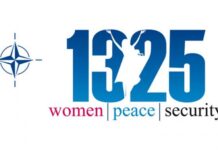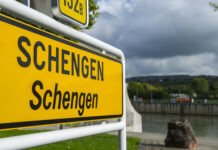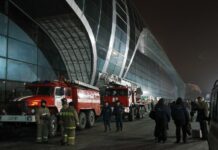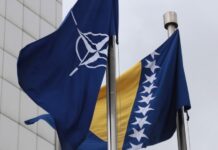Atlantic Initiative of BiH in Georgia
{gallery}newsletters/6/5/1/{/gallery}From 20 to 25 June in Kvesheti, Georgia, a seminar of the European Youth Foundation and the Council of Europe was held. It was implemented with the help of the Georgian non-governmental Woman’s Information Center. The topic of the intensive training program was training young people in building peace and security with participation of potential leaders from various parts of the world. The priority of the conference was of those coming from conflict and post-conflict regions such as Georgia. The Atlantic Initiative of BiH also had a representative there. Young people and future experts from several non-governmental organizations met in Kvesheti. There were representatives from Georgia as well as the rest of the South Caucasus, the Balkan Peninsula, and several countries in Central Europe. Together, they worked on accomplishing the project goal of focusing the forces and expertise from the field of human rights and security on designing and implementing projects for building peace and for a better future.
The turbulent recent past and 2008 war experiences of Georgia helped the participants to understand the depth of the problem of conflicts on personal, regional and national level. Such concepts also helped them to learn about the fundamental instruments and mechanisms of conflict management. The seminar was also focused on questions of personal identities, especially in multicultural and multinational environments.
The theory of conflict starts from an individual position: both to society and oneself. Therefore, identity issue is of great importance because, especially in multicultural and multinational environments, expansion of horizons is highlighted. That is, the concept of understanding oneself not as a member of just one group, but as a part of a broader community, the whole society, state, region, even continent (European identity, for example).
{gallery}newsletters/6/5/2/{/gallery}
Conflicts start on individual level: most often motivated by the lack of knowledge, tolerance, or from prejudice. Therefore, the main goal of such educational gatherings is also an attempt to gather young people from the conflict zones of Georgia (including South Ossetia and Abkhazia) who meet each other. This was combined with the association with their peers that share similar experiences from recent or more distant past conflicts. Thereby, they were developing skills for solving social problems of these regions.
The use of the programs of formal and informal education was an attempt to get the target group closer to the topics of peace building, psychological rehabilitation, training of young leaders, and creating intercultural dialogue and exchange of experiences and dialogues among countries. One of the key elements was also work with minorities and introduce the term of “positive discrimination.” Young people, already involved in security, social or humanitarian structures, are of crucial importance in peace building. They are the only force and power for changing intolerant or wrong political positions in addition to bringing a better future.
Further cooperation of the participants in various projects of building peace and prosperity in vulnerable regions is planned. And the further engagement of the Atlantic Initiative of BiH as well as non-governmental organizations from Croatia, Austria, Turkey, Armenia and Georgia is expected.
Text and photo: Jasna PEKIĆ







